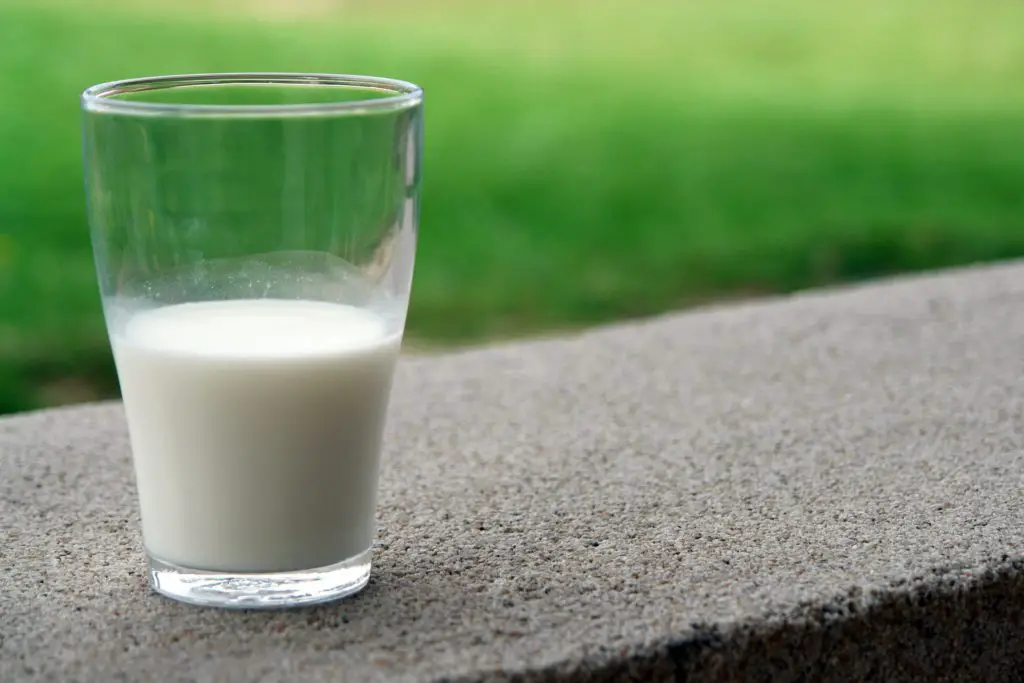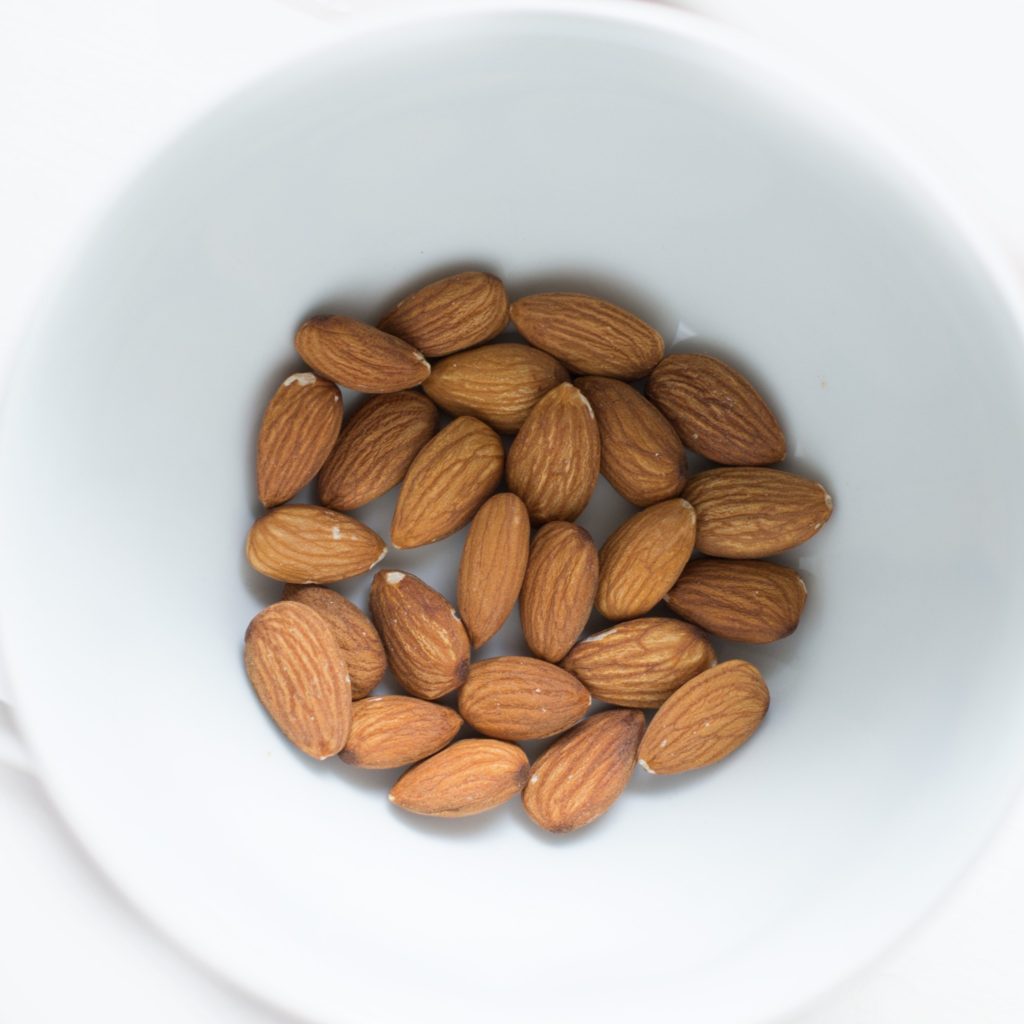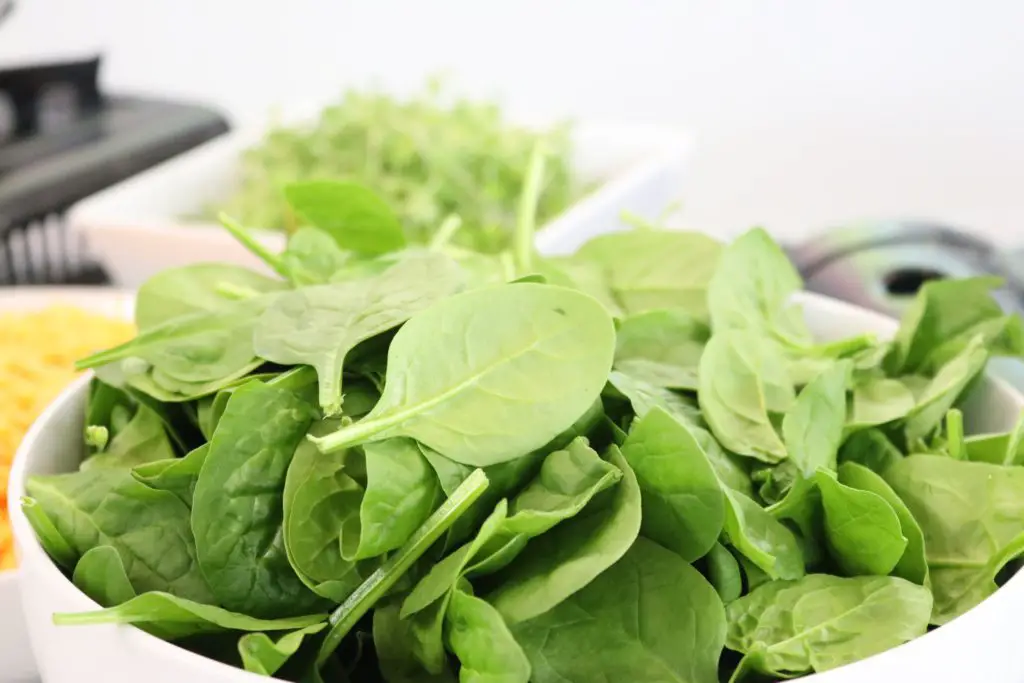Milk consumption is a highly debated topic lately! Is it harmful or helpful overall? Many health trends warn against dairy intake, but other studies show clear benefits for regular dairy consumption. The existing research is mixed. So which is it? It may depend on several factors if dairy is right for you.
Dairy is the easiest way to get many nutrients. It’s an important food group for many people who aren’t getting essential nutrients from other foods, but if you are eating a balanced and healthy diet, it can be perfectly healthy to be dairy-free.
Find out if going dairy-free is right for you by reading the benefits and consequences below.

Reasons Why Teens Should Consider Going Dairy-Free:
- Dairy allergy
- Lactose intolerance
- Personal reactions to dairy (digestion problems, acne, etc.)
- Individual preference- other ethical reasons, dietary restrictions, or health concerns. It can be possible, and even simple, to get the important dairy-nutrients from other foods from a well-planned diet
Check with a doctor if you believe you have a dairy allergy or intolerance.
- Symptoms of dairy allergy: possible dangerous allergic reactions with mild rashes, hives, swelling of lips and face, wheezing, tightness in throat, trouble breathing, and unconsciousness. Carry an EpiPen and get medical help immediately if symptoms are severe.
- Symptoms of dairy/lactose intolerance: causes bloating, abdominal cramps, gas, uncomfortable indigestion, diarrhea, nausea. It may be uncomfortable, but isn’t dangerous like a milk allergy.
Dairy includes milk, cheese, yogurt, ice cream, whipped cream, cottage cheese, butter, etc. If you have a dairy intolerance, you may not be able to handle drinking milk, but you might be okay with yogurt, cheese, and small amounts of other dairy products.
If you have a dairy allergy, you need to cut out all dairy. Be sure to read food labels and look for hidden dairy ingredients such as casein, whey, ghee, galactose, hydrolysates, lactose, nougat, rennet, etc.
Benefits of Dairy–
- Milk is packed with nutrients– after all, newborn baby humans and animals are nourished by only milk! It provides many important nutrients such as calcium, protein, vitamin D, potassium, phosphorus, magnesium, and more. These nutrients help your body function properly, move, think, grow, fight infection, etc.
- Protein– It is an excellent source of high-quality protein. It contains BCAAs, which may be especially beneficial for helping athletes recover and build muscle
- Omega 3s– Dairy contains hundreds of fatty acids, including linoleic acid and omega-3s for heart health, brain development, and fighting depression and anxiety
- Bone Health– Because of high levels of protein, calcium, and vitamin D content, dairy is a good choice to help build and strengthen bones, which is crucial in the teenage years (which may help to prevent osteoporosis and bone fractures)
- Controls your appetite and cravings– A glass of milk can help you to feel full and curb your appetite
- Lower risk of disease– Low-fat dairy products as part of a healthy diet contributes to lower risk of diabetes, heart disease, and lower blood pressure
- Gut health– Probiotics in cultured dairy products like yogurt contribute to healthy gut bacteria which affects good health overall which also reduces the risk of multiple diseases
- Lower risk of obesity- Drinking dairy may contribute to a healthy weight, and may prevent weight gain
- Post-workout– Milk can be a great post-workout recovery beverage because of the carbohydrates, protein, and fluid
- And more benefits!
Cons of Consuming Dairy:
- May cause uncomfortable indigestion
- Could worsen skin problems
- Other ethical/environmental reasons
- 2% and whole-fat dairy products are higher in calories, saturated fat, and cholesterol which may lead to health problems
There may be a lot of proponents for dairy-free lifestyles right now, but the research has yet to prove that dairy is “bad” for us. Rather, I believe dairy isn’t good or bad, but moderate amounts are appropriate in most teen diets.
Why is Dairy Good For Teenagers? Why TEENS Should Drink Dairy:
Drinking milk is the easiest way to get many essential nutrients. You don’t have to drink milk, but you have to get those nutrients from something else if you choose not to get them from dairy.
Dairy is a main food group recommendation because it provides many important nutrients in one glass of milk! Protein, calcium, vitamin D, vitamin A, vitamin B12, potassium, phosphorus, riboflavin, magnesium, zinc, choline, selenium, and more.
Calcium is a under-consumed nutrient in the average diet of adults and teenagers, and is a nutrient of concern.
You can’t just replace milk with almond milk, because you’ll be missing out on a lot of nutrients and almond milk isn’t quite as nutritious as cow’s milk. You have to plan other ways to get vitamin D, calcium, protein, and many other nutrients that are usually lacking in almond milk.
It’s true, you can have a perfectly healthy diet without dairy, but you’ll need to plan for other ways to get calcium especially in your diet. The recommendation for calcium for female and male teenagers ages 9 to 18 is 1300 mg of calcium per day. That’s about 3 cups of milk! I
f you aren’t drinking milk where are you getting calcium from? Almond milk and other milks do not contain much calcium, but are sometimes fortified to provide a small amount.
There are other calcium-rich foods that are options, such as green leafy vegetables and nuts. Here are some ways to get the recommended 1300 mg of calcium per day:
- 3 cups of milk
- about 7 cups of fortified Almond Breeze almond milk
- 3 cups of almonds (that’s about 2500 calories too!)
- 13 cups of kale
- 20 cups of broccoli
- 5 1/3 cups of cooked spinach
- 12 oz of sardines
- 3/4 block of tofu
- You can also get calcium from salmon, soy beans, edamame, beans, oranges, rhubarb, okra, etc.

Again- milk and other dairy products are one of the easiest ways to get calcium and other nutrients. However, the calcium content of food can get a bit tricky because it isn’t all absorbed once it hits your gastrointestinal tract.
Only about 32% of the calcium is absorbed from milk while 60% of the calcium from broccoli is absorbed. But since the calcium amount is lower in broccoli, you’d still have to eat 2 1/2 cups of broccoli to equal 1 cup of milk.
The bottom line, there’s pros and cons either way. There is not one right way to get the perfect amount of calcium (and other nutrients) each day. That means the best way to make sure you get enough calcium is to get a variety of these foods.
Tips for Dairy-Free Teens
I probably sound like I am definitely team dairy! Personally I love milk and I drink 3 cups everyday. I also love non-dairy milks such as flax milk, almond milk, and oat milk.
I do my research and keep up-to date on the dairy pros and cons. I don’t think dairy intake is for everyone, but with a well-planned balance of other foods, important nutrients do not need to come from dairy.
If you can’t or choose not to consume dairy, here are a few tips for getting nutrients (calcium and vitamin D especially) from non-dairy sources:
- Make sure you plan a diet with lots of calcium from non-dairy sources like dark leafy greens, nuts, beans, and fish
- Almond milk and other plant-based milks, if fortified with calcium and vitamin D can be a great substitute for dairy. They are lower in calories and carbs, and also lower in protein. What’s your favorite non-dairy milk? Mine is flax milk- I use it for smoothies and overnight oats
- Start reading Nutrition Facts labels, find cereals and other products fortified with calcium and vitamin D
- Eat canned salmon instead of canned tuna on your sandwich
- Blend kale and spinach with your fruit smoothies in the morning (you can’t even taste it!)
- Use cooked dark leafy greens such as bok choy or collard greens
- Add almonds and dried fruit to oatmeal and granola

If you don’t like to drink milk, but need some of the benefits, then at least choose to implement Greek yogurt into your diet often. It has many of the health benefits of cow’s milk, plus it provides probiotics which contributes to gut health and overall health. You can eat it plain or with fruit and granola, or mix it with smoothies and oatmeal, or even soups and other dishes as a cream substitute.
How much dairy should teenagers get each day?
The recommendations are set at 3 cups per day, based on calcium and other nutrient requirements. You may want to consider organic milk, especially for children and teens, and especially for individuals who drink a lot of milk. Organic milk may help to reduce inflammation and fight oxidative stress because of the higher content of antioxidants.
Other dairy products can count towards your 3 cups of dairy.
1 cup of milk is equal to:
- 1 cup of yogurt
- 1/3 cup shredded cheese
- 2 cups cottage cheese
- 1 1/2 ounces hard cheese
- 2 ounces processed cheese
What Type of Milk Should A Teenager Drink?
Typically I recommend 1% milk for teenagers, due to the lower calorie and fat content but similar nutrients. Recommendations to avoid whole-fat dairy products have been popular in the past, but aren’t supported by recent science.
New research shows health benefits of consuming whole milk, possibly due to the increased amount of omega-3 fatty acids. Ask your doctor, because whole dairy products may be healthy for a growing teenager.
Related Questions:
Why is dairy bad for you? Dairy contains cholesterol and saturated fat, which may contribute to heart problems; however, new research findings are mixed and results are controversial (based on the types of fatty acids in milk). Cut back on cheese and choose low-fat skim milk or 1% if you are at risk for heart problems or need to lower your fat intake.
Interested in more great posts for teens? See also:
Is Whey Protein Safe for Teenagers?
How Much Should a 16 year-old teen?
The BEST Pre-Workout Snacks for Teen Athletes
References
Fueling Teens is a participant in the Amazon Services LLC Associates Program, an affiliate advertising program designed to provide a means for sites to earn advertising fees by advertising and linking to Amazon.com. We also participate in other affiliate programs which compensate us for referring traffic.
